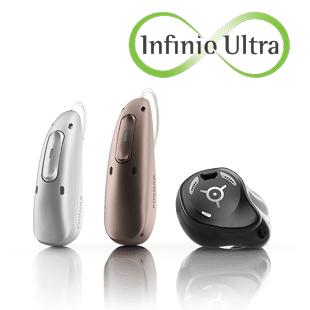
Supporting brain health during World Alzheimer’s Month
World Alzheimer’s Month is a time to increase awareness and reduce stigma around dementia. This article highlights the role hearing care professionals can play in supporting clients and families.
As a psychologist focused on aging and brain health, I see daily how important it is to maintain communication and social contact. Hearing care professionals are in a strong position to support this, and by doing so, they can also contribute to protecting cognitive health in their clients.
This September, during World Alzheimer’s Month, the global campaign theme Ask about Dementia. Ask about Alzheimer’s invites us to start more conversations, reduce stigma, and empower families.1 Hearing care is an important part of that effort.1
Dementia is not a normal part of aging
Despite growing knowledge, misconceptions persist. Two-thirds of health professionals still believe dementia is simply a normal part of aging.1 Almost 80% of the general public are concerned about developing dementia and 1 in 4 people think that there is nothing we can do to prevent dementia.
Families may even hide a diagnosis out of shame or fear of judgment. This silence means that many people living with dementia may never disclose it in your clinic.
Yet dementia is not inevitable. Research tells us that up to 45% of cases could potentially be delayed or prevented if we addressed modifiable risk factors, including hearing loss.2
Why hearing care supports brain health
From a psychological perspective, one of the most important protectors of brain function is social engagement. It stimulates memory, emotion, and reasoning while reducing loneliness, one of the greatest threats to healthy aging.3
Untreated hearing loss can reduce this engagement. People withdraw from conversations they cannot follow. They stop attending community events and group activities. In turn, their risk of cognitive decline increases. That is where your work makes a meaningful difference.
By treating hearing loss, you are not only improving communication, you are also supporting a person’s role as a family member, a friend, and a participant in society.
Fresh evidence: Everyday behaviors can protect cognition
One of the most encouraging findings in recent years comes from the U.S. POINTER clinical trial (published in JAMA, July 2025).4 This large study tested lifestyle changes in older adults at risk for cognitive decline. Participants were supported in four areas:
- Physical activity
- Nutrition
- Cognitive and social activity
- Health monitoring
The results:
- Both structured and self-guided lifestyle groups showed improved cognition over two years.
- The structured group benefited even more.
- Cognitive benefits were consistent across age, sex, ethnicity, genetic risk, and heart health status.
The conclusion is straightforward: healthy behaviors have measurable effects. When actions are combined and targeting multiple risk factors, we now know it can have an even more powerful impact.
Practical guidance for hearing care professionals
The following suggestions can help integrate dementia awareness into your daily hearing care practice.
1. Normalize brain health conversations
- Introduce the ears and the brain as equal partners: while the ears pick up the acoustic signals, the brain gives meaning to the puzzle pieces.
- Use awareness month as a bridge: “This month we are raising awareness about brain health. Did you know hearing care can contribute to memory and social connection?”
- Emphasize that dementia is not a normal part of aging.
2. Notice behavioral clues
Pay attention to:
- Caregivers answering in place of the client.
- Clients struggling with instructions beyond hearing issues.
- Clients showing confusion, withdrawal, frustration, or changes in mood.
These incidents do not confirm dementia, but they may justify a gentle recommendation for medical follow-up and getting reassurance from an expert.
3. Offer communication tips
Support families with small, practical adjustments:
- Face the person and reduce background noise.
- Use short, clear sentences.
- Confirm understanding, not just repetition.
- Encourage participation in group activities, even if conversations are more difficult.
4. Support caregivers
More than half of dementia caregivers report that their own health has suffered.1 Many may feel isolated. Listening to their concerns and pointing them toward support resources can make a difference.
5. Present a holistic approach to hearing care
Frame hearing solutions as tools for maintaining independence, social participation, and mental agility. Families often appreciate this broader perspective, particularly when dementia is a concern.
Staying hopeful
Every three seconds, someone in the world develops dementia.1 This statistic is sobering, but it is not the complete picture. Evidence shows that brain health can be supported, and cognitive decline can be slowed in people at increased risk through hearing intervention5 as well as lifestyle interventions.4
A Call to Action
Hearing care professionals are often among the first to notice subtle changes, the first to raise awareness, and the first to help maintain social connections that keep minds active.
This World Alzheimer’s Month is an opportunity to integrate this perspective into daily practice. By fostering communication and supporting social participation, hearing care professionals contribute to the well-being and quality of life of clients and their families.
References:
- Alzheimer’s Disease International. (2025). World Alzheimer’s Month. Retrieved from https://www.alzint.org/get-involved/world-alzheimers-month/
- Livingston, G., Huntley, J., Liu, K. Y., Costafreda, S. G., Selbæk, G., Alladi, S., Ames, D., Banerjee, S., Burns, A., Brayne, C., Fox, N. C., Ferri, C. P., Gitlin, L. N., Howard, R., Kales, H. C., Kivimäki, M., Larson, E. B., Nakasujja, N., Rockwood, K.,…Mukadam, N. (2024). Dementia prevention, intervention, and care: 2024 report of the Lancet Commission. The Lancet, 404(10452), 572-628. https://doi.org/10.1016/S0140-6736(24)01296-0
- World Health Organization. (2025). Reducing social isolation and loneliness among older people. Retrieved from https://www.who.int/activities/reducing-social-isolation-and-loneliness-among-older-people
- Baker, L. D., Espeland, M. A., Whitmer, R. A., Snyder, H. M., Leng, X., Lovato, L., Papp, K. V., Yu, M., Kivipelto, M., Alexander, A. S., Antkowiak, S., Cleveland, M., Day, C., Elbein, R., Tomaszewski Farias, S., Felton, D., Garcia, K. R., Gitelman, D. R., Graef, S., Howard, M., … Carrillo, M. C. (2025). Structured vs Self-Guided Multidomain Lifestyle Interventions for Global Cognitive Function: The US POINTER Randomized Clinical Trial. JAMA, 334(8), 681–691. https://doi.org/10.1001/jama.2025.12923
- Lin, F. R., Pike, J. R., Albert, M. S., Arnold, M., Burgard, S., Chisolm, T., Couper, D., Deal, J. A., Goman, A. M., Glynn, N. W., Gmelin, T., Gravens-Mueller, L., Hayden, K. M., Huang, A. R., Knopman, D., Mitchell, C. M., Mosley, T., Pankow, J. S., Reed, N. S.,…Coresh, J. (2023). Hearing intervention versus health education control to reduce cognitive decline in older adults with hearing loss in the USA (ACHIEVE): a multicentre, randomised controlled trial. The Lancet, 402(10404), 786-797. https://doi.org/10.1016/S0140-6736(23)01406-X
